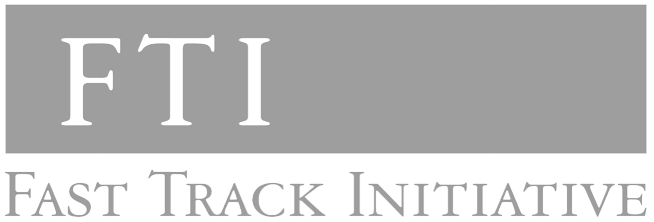
ABOUT US
A New Vision for Precision Medicine
Our team is dedicated to pioneering precision medicine in inflammatory disease by harnessing the power of single-cell RNA sequencing and human disease biology at scale.
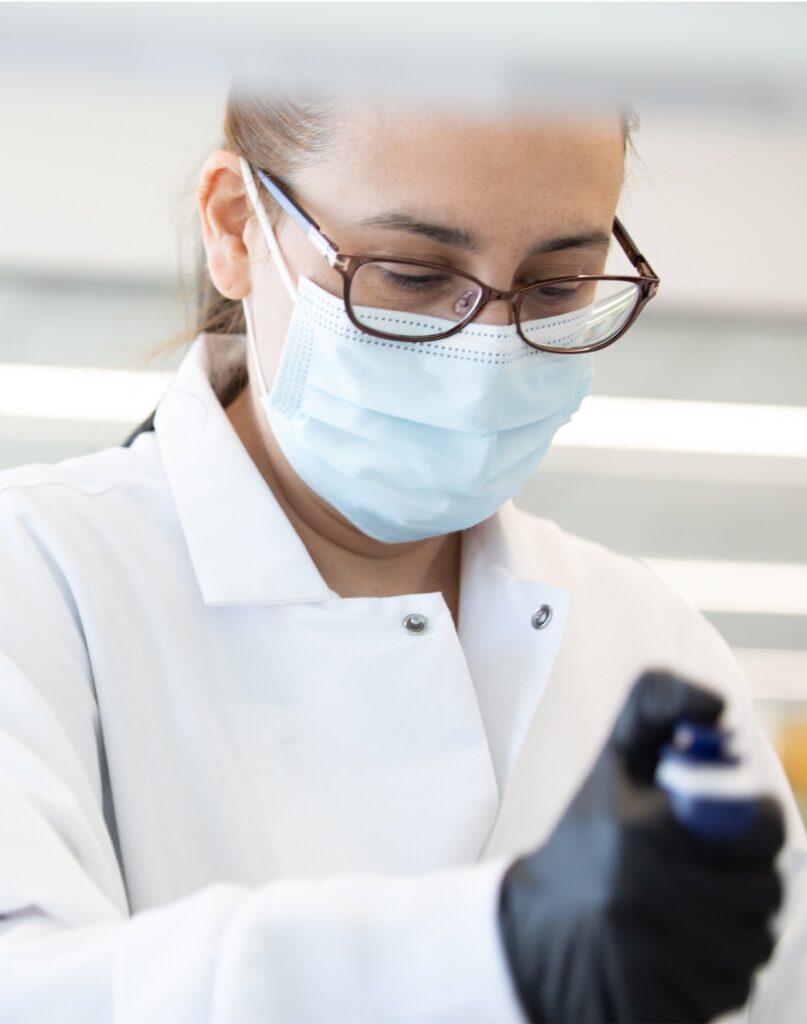
Mission & Vision
Celsius is a New Way of Seeing
We’ve taken a new approach to understand human disease biology through a powerful combination of single-cell genomics and machine learning.
Celsius is Developing Precision Therapies for Complex, Multifactorial Diseases
The promise of precision medicine has yet to benefit immuno-inflammatory diseases. Now, with new insights, we can build a broad therapeutics pipeline, identify targeted patient populations and design smarter clinical studies in these complex conditions.
Collaboration is at the Core of all We Do
Collaboration is a fundamental tenet of our ecosystem. Our multidisciplinary team incorporates various perspectives to drive towards new therapies, while our external partnerships expand the reach of what’s possible.

WHO WE ARE
The Art of Seeing What is Invisible to Others
Celsius is poised to establish a new era of precision therapies for inflammatory diseases.
Observation. Insights. Action.
Translating complex biological information into impactful therapies for patients requires relentless determination, the ability to connect diverse data points and immeasurable curiosity.
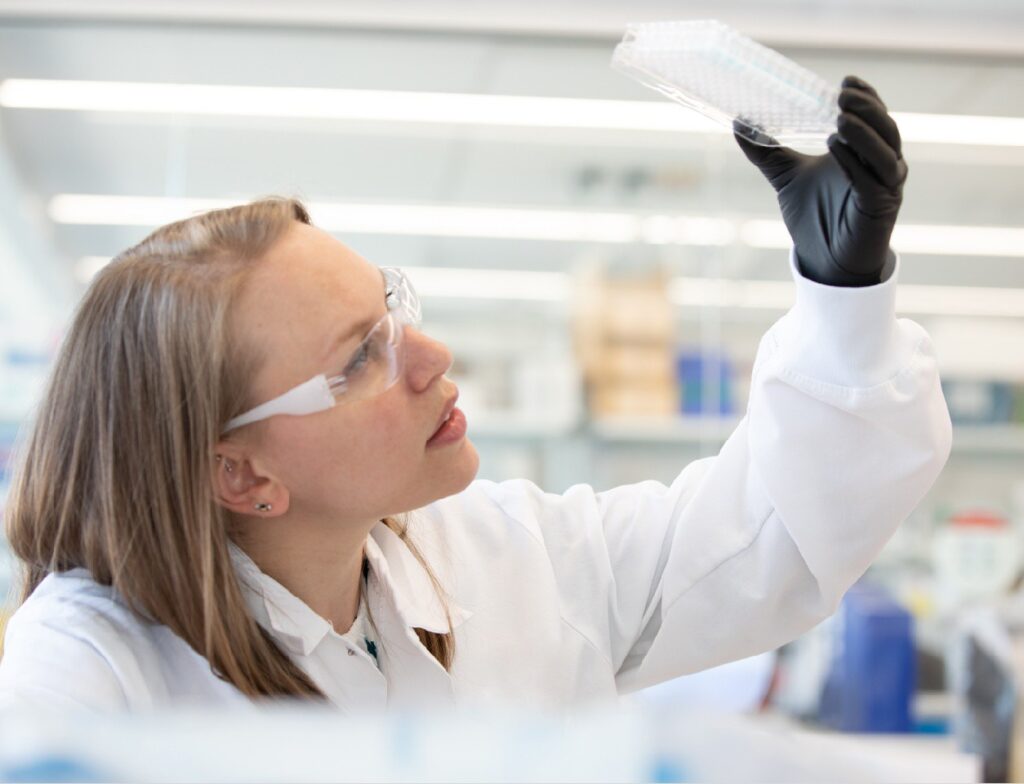
We believe we are at the cusp of another transformational era of medicine with the advent of new technologies that allow us to see and understand cells in completely new ways, most notably single-cell RNA sequencing and machine learning. What sets Celsius apart is how we apply the power of these technologies at scale to observe cellular programs in actual human disease.
Our SCOPE platform enables us to identify new targets and patient subsets in complex, multifactorial diseases. The ability to “see” the behavior of human cells in disease progression means that we can design more targeted discovery and development programs and build an extensive pipeline of drugs.

Board of Directors
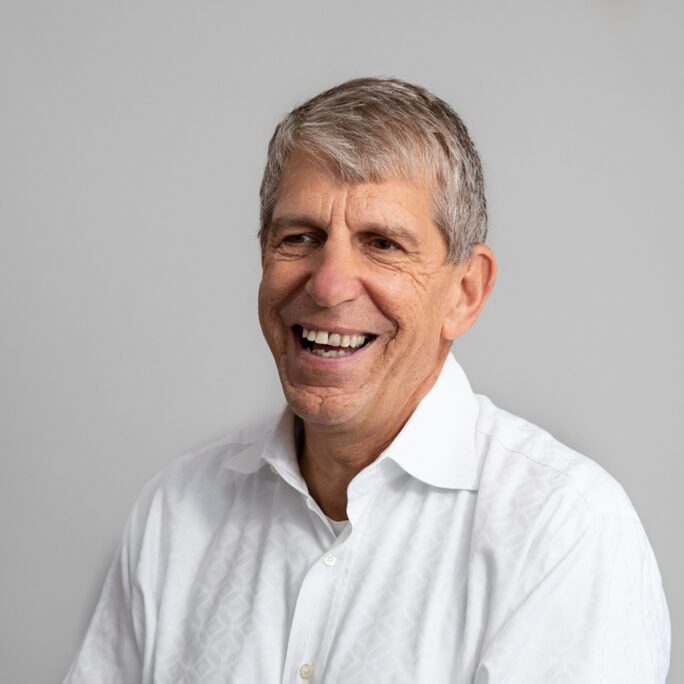
Neil Exter
Partner, Third Rock Ventures

Neil Exter
Partner, Third Rock Ventures
Neil Exter is a partner at Third Rock Ventures, which he joined in 2007. At Third Rock, Neil focuses on the formation, development and strategy of new companies. He has more than 30 years of operating, business development and strategy experience across the spectrum of emerging and established biotechnology and technology companies. Neil has held senior operating roles at Constellation Pharmaceuticals, bluebird bio, Foundation Medicine, Pliant Therapeutics, Goldfinch Bio and Cedilla Therapeutics, among others. Prior to joining Third Rock, Neil was chief business officer of Alantos Pharmaceuticals, where he led the sale of the company to Amgen, and earlier, served as vice president for Millennium Pharmaceuticals, directing in-licensing and M&A.
Neil is a member of the investment committee of Mass General Brigham Ventures. Previously, he was a board member and treasurer of the New England Venture Capital Association and a member of the research board at Children’s Hospital.
Neil holds an MBA with highest distinction from Harvard Business School, an M.S. from Stanford University and a B.S. from Cornell University.
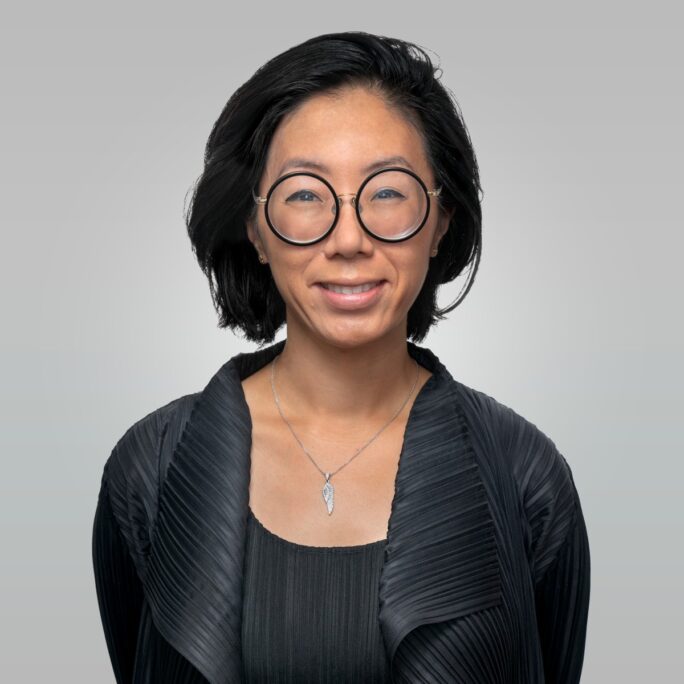
Suzanne Jung Angell
Director of Therapeutic Research, Casdin Capital

Suzanne Jung Angell
Director of Therapeutic Research, Casdin Capital
Suzanne Jung Angell is director of therapeutic research at Casdin Capital, a New York-based research investment firm focused on the innovations in molecular medicine currently reshaping Life Sciences and healthcare. Suzanne is a board observer for numerous portfolio companies, including Leyden Labs.
Suzanne began her investing career in 1999 at Cooper Hill Partners. Over her career, she has invested in and partnered with companies in biotechnology, life science tools, diagnostics and medical devices. With her own experience as a manager and operator in diverse businesses, Suzanne has a keen appreciation for the challenges facing entrepreneurs as they grow their businesses.
Suzanne holds a B.A. in biology and English from Yale University and an M.A. in English literature from Johns Hopkins University.
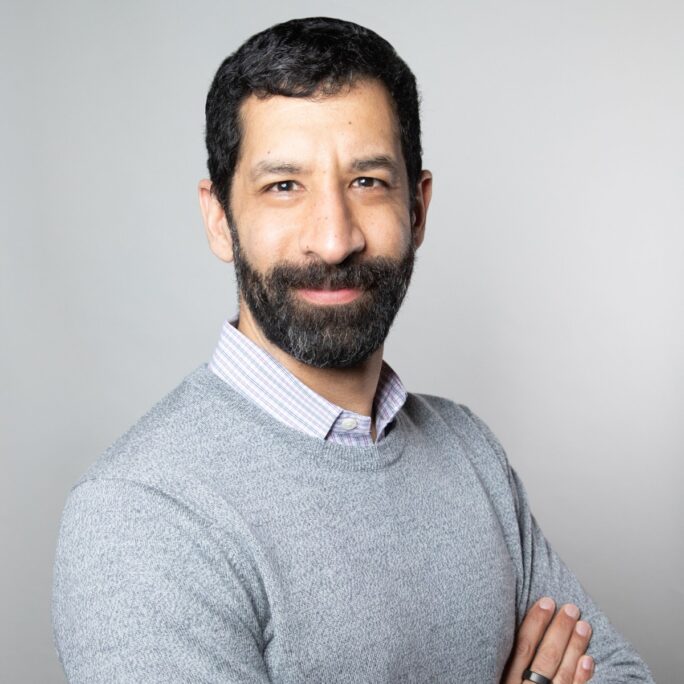
Tariq Kassum, M.D.
Chief Executive Officer

Tariq Kassum, M.D.
Chief Executive Officer
Tariq Kassum brings 20 years of experience in corporate development, strategy and business leadership to Celsius. He joined the company in 2019 from Obsidian Therapeutics, where he was a co-founder and served as chief operating officer and head of corporate development. During this time, Tariq helped build Obsidian into a leading platform technology company and played a central role in the company’s strategic partnership with Celgene. Prior to Obsidian, Tariq spent seven years with Millennium Pharmaceuticals and Takeda, most recently as vice president, business development and strategy for Takeda Oncology, responsible for transactions, collaborations, alliance management and strategic planning. Before that, he led Takeda’s global corporate development efforts, where he managed multiple acquisitions and divestitures in the U.S. and internationally. He was also part of the business development team at Millennium Pharmaceuticals.
Prior to Takeda, Tariq was an analyst covering healthcare equities for institutional investment firms, where he led scientific due diligence and investment decisions on numerous companies and pharmaceutical compounds across multiple therapeutic areas. He began his career as an investment banker with CIBC World Markets, serving clients in the biotechnology and specialty pharmaceuticals industries.
Tariq holds an M.D. from the University of Toronto and a B.A. in biology and French literature from Cornell University.
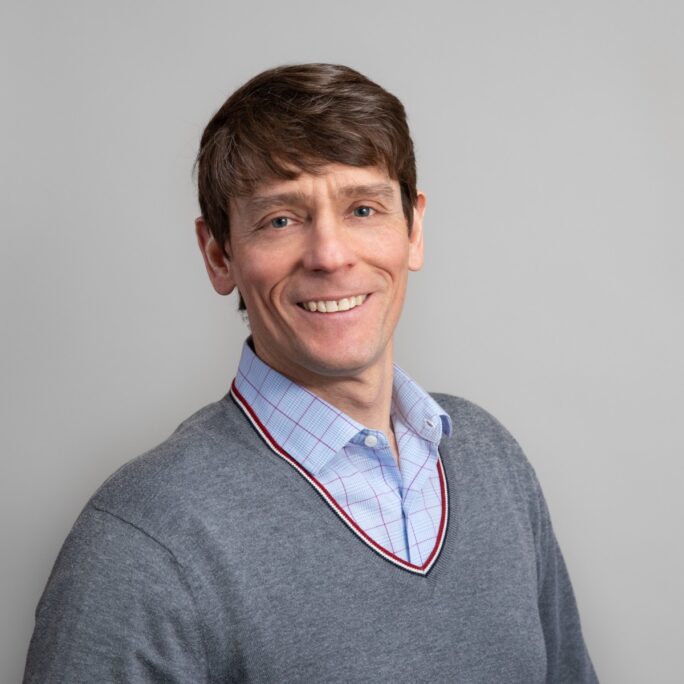
Christoph Lengauer, Ph.D.
Co-Founder, Curie.Bio

Christoph Lengauer, Ph.D.
Co-Founder, Curie.Bio
Christoph Lengauer is a co-founder and chief scientific officer of Curie.Bio, where he co-pilots seed-stage companies through series A financing. He is also a scientific adviser of IDRx, a clinical-stage biopharmaceutical company dedicated to transforming cancer care with intelligently designed precision combination therapies.
Until recently, Christoph ideated, founded and built several life science companies as partner at Third Rock Ventures, including Blueprint Medicines, Relay Therapeutics, Thrive – An Exact Sciences Company, Celsius Therapeutics and MOMA Therapeutics.
Christoph has contributed to the approval of nine FDA-approved cancer medicines. Prior to joining biotech, Christoph was global head of oncology drug discovery at Sanofi and senior unit head of oncology discovery at Novartis. He has been an associate professor at the Johns Hopkins University School of Medicine, where he was involved in the identification of several cancer driver genes including PIK3CA and BRAF. As part of his research in Dr. Bert Vogelstein’s lab, Christoph discovered that all cancers are genetically unstable, which explains the molecular heterogeneity of cancer and why cancers develop resistance to drugs. He has authored more than 100 scientific articles published in top-tier scientific journals, including Cell, Nature and Science.
Christoph has received numerous awards, including the Novartis Oncology President’s Award for Top Innovator. He has been elected to membership in the Johns Hopkins Society of Scholars. Christoph is a strong and outspoken advocate of patients’ rights and co-founded EQRx, which makes innovative medicines at radically lower prices. He is featured in the New York Times bestseller and HBO movie The Immortal Life of Henrietta Lacks.
Christoph studied human genetics in Salzburg, Austria and obtained a Ph.D. in biology from the University of Heidelberg, Germany. He received his MBA with a focus on medical services management from the Johns Hopkins Carey Business School.
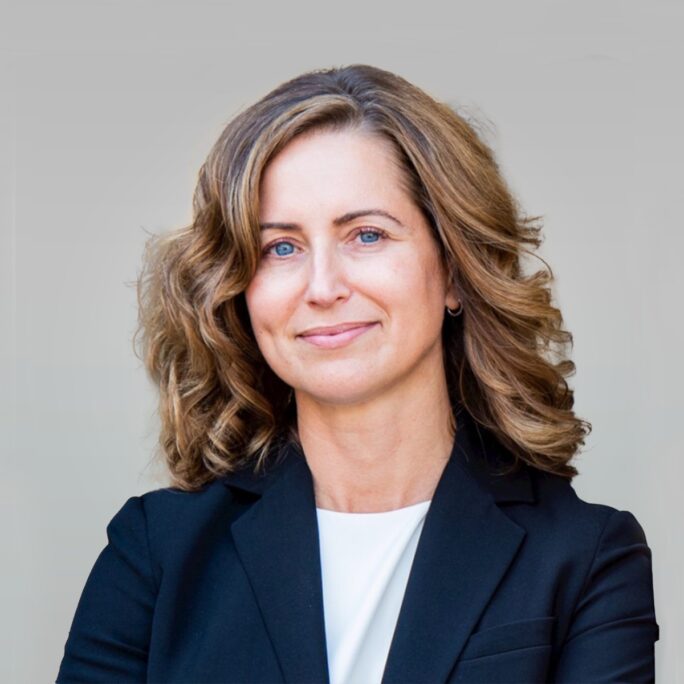
René Russo, Pharm.D.
CEO, Xilio Therapeutics

René Russo, Pharm.D.
CEO, Xilio Therapeutics
René Russo has more than 20 years of experience leading all aspects of R&D and commercialization in the biopharmaceutical industry. She is currently the CEO of Xilio Therapeutics, a biotechnology company developing tumor-selective immuno-oncology therapies for people living with cancer. Prior to Xilio, René was the president and CEO of Arsanis, a company developing monoclonal antibodies to prevent and treat serious infectious diseases, which merged with X4 Pharmaceuticals in 2018. Prior to Arsanis, she spent 12 years at Cubist Pharmaceuticals, a leading global anti-infective company acquired by Merck for $9.6 billion. René also held R&D roles at Bristol-Myers Squibb, where she contributed to the development and global commercialization of several successful products, including REYATAZ and BARACLUDE.
Before joining the biotechnology industry, René held clinical positions at Robert Wood Johnson University Hospital and Princeton Hospital.
She currently serves on the boards of Xilio Therapeutics and Life Science Cares.
René holds a Pharm.D. and B.S. from Rutgers University.
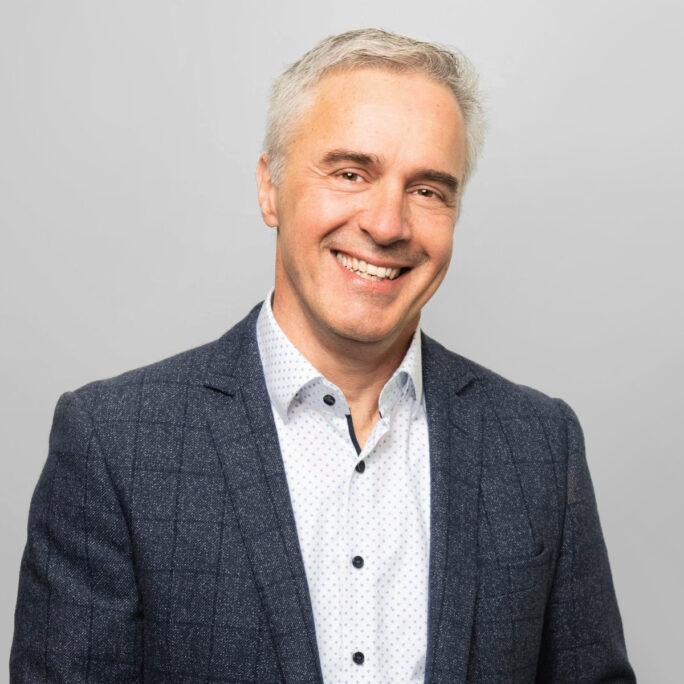
Andrea van Elsas, Ph.D.
Venture Partner, Third Rock Ventures

Andrea van Elsas, Ph.D.
Venture Partner, Third Rock Ventures
Andrea van Elsas is a venture partner at Third Rock Ventures. Previously, he served as chief scientific officer at Aduro Biotech following the acquisition of BioNovion, a company he co-founded in 2011.
From 1999 to 2011, Andrea held various positions at Organon (acquired by Schering-Plough and later by Merck) in Oss, The Netherlands, and Cambridge, Massachusetts. As director of tumor immunology, he oversaw the immuno-oncology portfolio and led the anti-PD1 program that later became known as pembrolizumab.
As a postdoctoral researcher, Andrea worked in the lab of Nobel Laureate Jim Allison at the University of California, Berkeley and is a co-inventor on the original anti-CTLA-4 patents that formed the basis for the development of ipilimumab, the first checkpoint inhibitor approved in 2011 by the FDA for the treatment of melanoma. He currently serves on the scientific advisory boards of Lava Therapeutics (chair), InteRNA Technologies and the supervisory board of DCPrime.
Andrea holds a Ph.D. in immunology and oncology from the University of Leiden and an M.S. in molecular and cell biology from the Universiteit van Amsterdam.
Founders
Jeffrey Bluestone, Ph.D.
President and CEO, Sonoma Biotherapeutics
Jeffrey Bluestone, Ph.D.
President and CEO, Sonoma Biotherapeutics
Jeffrey Bluestone is one of the leading immunologists in the field of T-cell activation and immune tolerance research that has led to the development of multiple immunotherapies, including the first FDA-approved drug targeting T-cell co-stimulation to treat autoimmune disease and organ transplantation and the first CTLA-4 antagonist drugs approved for the treatment of metastatic melanoma.
Dr. Bluestone is an academic leader on a national and international scale. He is former President and CEO of the Parker Institute for Cancer Immunotherapy, and was the founding director of the Immune Tolerance Network, the largest NIH-funded multicenter clinical immunology research program, testing novel immunotherapies in transplantation, autoimmunity and asthma/allergy. While holding the A.W. and Mary Margaret Clausen Distinguished Professorship at UCSF, Dr. Bluestone also served as executive vice chancellor and provost emeritus at UCSF and was the former director of the UCSF Diabetes Center.
Dr. Bluestone has authored more than 400 peer-reviewed publications and has received numerous awards, including election to the American Academy of Arts and Sciences and the National Academy of Medicine. In 2016, he was appointed a member of Vice President Joe Biden’s Cancer Moonshot Blue Ribbon Panel.
Dr. Bluestone holds a Ph.D. in immunology from Cornell University and a B.S. in biology from Rutgers University.
Vijay Kuchroo, DVM, Ph.D.
Samuel L. Wasserstrom Professor of Neurology, Harvard Medical School
Vijay Kuchroo, DVM, Ph.D.
Samuel L. Wasserstrom Professor of Neurology, Harvard Medical School
Dr. Vijay Kuchroo is the Samuel L. Wasserstrom Professor of Neurology at Harvard Medical School; senior scientist at Brigham and Women’s Hospital; co-director of the Center for Infection and Immunity at the Brigham Research Institutes in Boston; institute member of the Broad Institute; and founding director of the Evergrande Center for Immunologic Diseases at Harvard Medical School and Brigham and Women’s Hospital. He is also a senior investigator in a Klarman Cell Observatory project that focuses on T cell differentiation.
Dr. Kuchroo’s major research interests include autoimmune diseases – particularly the role of co-stimulation – the genetic basis of experimental autoimmune encephalomyelitis and multiple sclerosis, as well as cell surface molecules and regulatory factors that regulate the induction of T cell tolerance and dysfunction. An established leader in immunology, he was the first to describe the inhibitory receptor TIM-3, which is being exploited as a target for cancer immunotherapy, and the first to describe the development of highly pathogenic Th17 cells, which have been shown to induce multiple different autoimmune diseases in humans. Dr. Kuchroo is the lead author on a paper describing the development of Th17, which is one of the most cited papers in the field of Immunology.
Dr. Kuchroo came to the U.S. in 1985 as a Fogarty International Fellow at The National Institutes of Health for one year, before joining the department of pathology at Harvard Medical School, as a research fellow. Later, he joined the Center for Neurologic Diseases at Brigham and Women’s Hospital as a junior faculty member.
Dr. Kuchroo has founded multiple biotech companies in the areas of cancer immunology and autoimmunity, including Point Therapeutics, CoStim (acquired by Novartis), Potenza (acquired by Astellas), Tizona (partly acquired by Gilead) and Bicara. He also serves on the scientific advisory boards and works in advisory capacity to a number of internationally recognized pharmaceutical companies including Biocon, Syngene, Pfizer, Novartis and GlaxoSmithKline.
Dr. Kuchroo holds a degree in veterinary medicine from the College of Veterinary Medicine in Hisar, India and a Ph.D. in pathology from University of Queensland in Brisbane Australia. He received the Fred Z. Eager Research Prize and medal for his Ph.D. research work at the University of Queensland. Based on his contributions, he was awarded the Javits Neuroscience Award by the National Institutes of Health in 2002 and the Ranbaxy Prize in Medical Research from the Ranbaxy Science Foundation in 2011. In 2014, he was named Distinguished Eberly Lecturer and obtained a Nobel Laureate Peter Doherty Lecture/Prize. He also received Biolegend-William Paul award from International Cytokine and Interferon Society and Dystel prize from the American Association of Neurology and National MS Society.
Christoph Lengauer, Ph.D.
Co-Founder, Curie.Bio
Christoph Lengauer, Ph.D.
Co-Founder, Curie.Bio
Christoph Lengauer is a co-founder and chief scientific officer of Curie.Bio, where he co-pilots seed-stage companies through series A financing. Until recently, Christoph ideated, founded and built several life science companies as partner at Third Rock Ventures, including Blueprint Medicines, Relay Therapeutics, Thrive – An Exact Sciences Company, Celsius Therapeutics and MOMA Therapeutics.
Christoph has contributed to the approval of nine FDA-approved cancer medicines. Prior to joining biotech, Christoph was global head of oncology drug discovery at Sanofi and senior unit head of oncology discovery at Novartis. He has been an associate professor at the Johns Hopkins University School of Medicine, where he was involved in the identification of several cancer driver genes including PIK3CA and BRAF. As part of his research in Dr. Bert Vogelstein’s lab,
Christoph discovered that all cancers are genetically unstable, which explains the molecular heterogeneity of cancer and why cancers develop resistance to drugs. He has authored more than 100 scientific articles published in top-tier scientific journals, including Cell, Nature and Science.
Several years ago, Christoph founded Advice Connect Inspire to provide both strategic consulting and hands-on operational support to startups and young European companies so they can more easily succeed globally.
Christoph has received numerous awards, including the Novartis Oncology President’s Award for Top Innovator. He has been elected to membership in the Johns Hopkins Society of Scholars. Christoph is a strong and outspoken advocate of patients’ rights and co-founded EQRx, which makes innovative medicines at radically lower prices. He is featured in the New York Times bestseller and HBO movie The Immortal Life of Henrietta Lacks.
Christoph studied human genetics in Salzburg, Austria and obtained a Ph.D. in biology from the University of Heidelberg, Germany. He received his MBA with a focus on medical services management from the Johns Hopkins Carey Business School.
Aviv Regev, Ph.D.
Head of Genentech Research & Early Development (gRED)
Aviv Regev, Ph.D.
Head of Genentech Research & Early Development (gRED)
Aviv Regev is a pioneer in deciphering molecular circuits that govern cells, tissues and organs in health and their malfunction in disease. In particular, she has pioneered assays for single cell RNA-Seq, machine learning algorithms for distilling biological knowledge from the resulting information, and many of the first demonstrations of how to yield foundational new insights into an extraordinarily wide range of molecular circuits, systems and fields, including immunology, neurobiology, development, inflammatory disease, cancer and evolution. In doing so, her groundbreaking work is helping to answer the deepest and most general of biological questions — how cells and their circuits function and rewire, and how these dynamics underlie health and malfunction in disease.
Dr. Regev is currently head of Genentech Research & Early Development (gRED). Previously, she was chair of the faculty, member of the executive leadership team, and founding director of the Klarman Cell Observatory at the Broad Institute of MIT and Harvard, as well as an investigator of the Howard Hughes Medical Institute. She is currently professor on leave in the Department of Biology at MIT and core member on leave at the Broad Institute. Dr. Regev is also the founding co-chair of the international Human Cell Atlas project. Prior to joining MIT and the Broad, she was a Bauer Fellow for the Center for Genomics Research at Harvard. Beyond her many scientific publications, she has been recognized with numerous designations and awards, including elected membership of the National Academy of Sciences and National Academy of Medicine a fellow of AACR and of the International Society for Computational Biology and recipient of an honorary doctorate from ETH in Zurich, the Vanderbilt Prize, the Ernst Schering Prize, the Keio Medical Science Prize, the Lurie Prize, the James Prize, the Paul Marks Prize, the Nakasone Award and the Innovator Award and Overton Prize, both from the International Society for Computational Biology.
Dr. Regev currently serves on multiple academic advisory and journal editorial boards, and served on the advisory committee to the National Human Genome Research Institute at the National Institutes of Health.
Dr. Regev holds a Ph.D. in computational biology and an M.Sc. from Tel Aviv University.
Ramnik Xavier, M.D., Ph.D.
Core Institute Member, Broad Institute, and Kurt Isselbacher Professor of Medicine, Harvard Medical School
Ramnik Xavier, M.D., Ph.D.
Core Institute Member, Broad Institute, and Kurt Isselbacher Professor of Medicine, Harvard Medical School
Ramnik Xavier is a core institute member of the Broad Institute of MIT and Harvard, where he serves as director of the Klarman Cell Observatory. He is also director of the Broad’s Immunology Program and co-director of the Broad’s Infectious Disease and Microbiome Program. He is the Kurt J. Isselbacher Professor of Medicine at Harvard Medical School; director of the Center for Computational and Integrative Biology and professor in the Department of Molecular Biology at Massachusetts General Hospital (MGH); and co-director of the Center for Microbiome Informatics and Therapeutics at MIT.
The Xavier laboratory focuses on systematic characterization of genetic variants to understand the regulation of barrier defense, innate and adaptive immunity; chemical biology to control cellular disease phenotypes suggested by human genetics; molecular mechanisms to determine roles of the microbiome in health and disease; and development of computational approaches to uncover patterns of human and microbial pathway regulation during disease and treatment.
Dr. Xavier has spent his academic career at MGH, where he served as chief of gastroenterology and is currently director of the NIH-funded Center for the Study of Inflammatory Bowel Disease.
Dr. Xavier holds a Ph.D. from the University of Groningen, Netherlands and MB. ChB (Honors) from the University of Zimbabwe School of Medicine.
Scientific Advisory Board
Maria T. Abreu, M.D.
Director, Crohn’s and Colitis Center, Professor of Medicine, and Professor of Microbiology and Immunology, University of Miami, Miller School of Medicine
Maria T. Abreu, M.D.
Director, Crohn’s and Colitis Center, Professor of Medicine, and Professor of Microbiology and Immunology, University of Miami, Miller School of Medicine
Maria T. Abreu, M.D., is the Director of the Crohn’s and Colitis Center at the University of Miami, Miller School of Medicine, where she also serves as the Vice Chair for Research, as well as Professor for the Department of Medicine, and Professor of Microbiology and Immunology. She is currently the Vice President of the American Gastroenterological Association (AGA) and will serve as the President Elect in 2023. In 2019, Dr. Abreu was awarded the Sherman Prize in IBD for her research and commitment to advancing science.
Dr. Abreu’s interests combine clinical aspects of IBD with translational microbiome/metabolomic studies, to determine if there are changes at the most fundamental levels in patients. Therefore, Dr. Abreu’s laboratory focuses on the host-bacterial interactions and in particular the role of toll-like receptor signaling in intestinal inflammation and neoplasia. Specifically, focusing on toll-like receptor 4 (TLR4) as a model for how recognition of bacteria by TLRs in the intestine functions broadly.
Dr. Abreu has spent most of her academic career focused on advancing IBD research, with an emphasis on identifying novel therapeutic targets with potential to treat patients with IBD.
Dr. Abreu holds an M.D. from the University of Miami, Miller School of Medicine.
Richard Flavell, Ph.D., FRS
Sterling Professor of Immunobiology, Yale University School of Medicine
Richard Flavell, Ph.D., FRS
Sterling Professor of Immunobiology, Yale University School of Medicine
Richard Flavell, Ph.D., is Sterling Professor of Immunobiology at Yale University School of Medicine and an Investigator of the Howard Hughes Medical Institute. His research is fundamental to our understanding of the molecular and cellular basis of innate and adaptive immunity.
Dr. Flavell was President and Chief Scientific Officer of Biogen Research Corporation for six years. Before Biogen, he was Head of the Laboratory of Gene Structure and Expression at the National Institute for Medical Research, and before that was Assistant Professor/Instructor at the University of Amsterdam.
Dr. Flavell is a Fellow of the Royal Society, a member of the National Academy of Sciences as well as the National Academy of Medicine. He is the recipient of several honors, including The Vilcek Prize in Biomedical Science and The William B. Coley Award for Distinguished Research in Basic and Tumor Immunology. He was recently honored as a distinguished Fellow by the American Association of Immunologists.
Dr. Flavell completed his postdoctoral work in Amsterdam with Dr. Piet Borst and in Zurich with Dr. Charles Weissmann. He received his B.Sc. (Honors) and Ph.D. in biochemistry from the University of Hull, England.
Peter Kharchenko, Ph.D.
Principal Scientist, Altos Labs San Diego Institute; Gilbert S. Omenn Associate Professor of Biomedical Informatics, Harvard Medical School
Peter Kharchenko, Ph.D.
Principal Scientist, Altos Labs San Diego Institute; Gilbert S. Omenn Associate Professor of Biomedical Informatics, Harvard Medical School
Peter Kharchenko, Ph.D., is a Principal Scientist at the Altos Labs San Diego Institute. He is also the Gilbert S. Omenn Associate Professor of Biomedical Informatics at Harvard Medical School (on leave AY2022-2023).
Dr. Kharchenko’s group has developed statistical and computational methods for analysis of high-throughput assays, with a particular focus on analysis of single-cell datasets. This includes applications to studies of tumor cells and their microenvironment in both hematologic and solid malignancies, as well as studies of tissue organization, development and cell fate commitment.
Dr. Kharchenko holds a Ph.D. from the Biophysics program at Harvard University, where he studied transcriptional regulation of metabolism under the mentorship of Dr. George Church. He then conducted his postdoctoral training with Dr. Peter Park at Harvard Medical School, focusing on analysis of epigenetic regulation in model organisms and mammalian tissues.
Florian Rieder, M.D.
Vice Chair, Co-Director IBD Section, Director IBD Research, Director IBD Advanced Fellowship, Cleveland Clinic
Florian Rieder, M.D.
Vice Chair, Co-Director IBD Section, Director IBD Research, Director IBD Advanced Fellowship, Cleveland Clinic
Florian Rieder, M.D., is Vice Chair, Co-director of the IBD Section, Director of IBD Research and Director of the Advanced IBD Fellowship Program in the Department of Gastroenterology, Hepatology and Nutrition at the Cleveland Clinic. His clinical focus is patients with IBD with a special emphasis on the field of pathogenesis, prediction and therapy of intestinal fibrosis.
Dr. Rieder has published more than 150 articles and book chapters and has been recognized for his expertise as indicated through invitations to clinical guideline steering committees of the European Crohn’s and Colitis Organization (ECCO). He is a full member of the consensus panel of the ECCO guidelines on Crohn’s disease, lead author of the ECCO guidelines on ulcerative colitis and lead author of the first ECCO clinical consensus on ‘Diagnosis and Management of Intestinal Fibrosis.’ He has received multiple international invitations as a speaker, session chair or conference faculty.
Dr. Rieder serves as an abstract reviewer for all major GI conferences, is past Associate Editor of Clinical and Translational Gastroenterology and has served on several editorial boards of medical journals. He is proud of his significant ties to the ECCO, where he served as the chair of Y-ECCO, member of the ECCO operational board, prior Y-ECCO committee member and member of the scientific committee. In addition, Dr. Rieder is past Chair of REACH-IBD and Co-chair of the Professional Education Committee of the Crohn’s and Colitis Foundation. Dr. Rieder is the leading PI on the international Stenosis Therapy and Research (STAR) Consortium, with the goal of building a pathway to test antifibrotic medications in stricturing Crohn’s disease. He was recently awarded the Sherman Emerging Leaders award.
Dr. Rieder holds an M.D. from the Ludwig Maximilian University Medical School in Germany. He underwent training in internal medicine / gastroenterology at the Klinik und Poliklinik für Innere Medizin I, Universitätsklinikum Regensburg, Germany and a residency in internal medicine and fellowship in gastroenterology, hepatology and nutrition at the Cleveland Clinic. Dr. Rieder has performed research fellowships at Harvard Medical School and the Cleveland Clinic.
Ton N. Schumacher, Ph.D.
Senior Member, The Netherlands Cancer Institute
Ton N. Schumacher, Ph.D.
Senior Member, The Netherlands Cancer Institute
Ton Schumacher, Ph.D., is Senior Member at the Netherlands Cancer Institute and Oncode Institute, and Fellow of the American Association for Cancer Research (AACR). He is also Venture Partner at Third Rock Ventures and founder of five biotechs, including T cell Factory (acquired by Kite Pharma), Neogene Therapeutics and Asher Bio. Previously, Dr. Schumacher spent much of his career at The Netherlands Cancer Institute, pursuing an engineering-based approach to dissect cancer-specific immunity.
In recognition of his work to reveal the mechanisms behind T cell recognition of cancer, Dr. Schumacher has received, amongst others, the Amsterdam Inventor Award, Queen Wilhelmina Cancer Research Award, Meyenburg Cancer Research Award, William B. Coley Award and Lloyd Old Award.
Dr. Schumacher conducted his Ph.D. research with Dr. Hidde Ploegh, describing the rules of antigen presentation by MHC molecules, and completed his postdoctoral work with Dr. Peter Kim at The Whitehead Institute.
Dr. Schumacher holds a Ph.D. from the Free University, Amsterdam.
Nir Yosef, Ph.D.
Associate Professor, Department of Systems Immunology, Weizmann Institute; Associate Professor, Department of Electrical Engineering and Computer Science, UC Berkeley
Nir Yosef, Ph.D.
Associate Professor, Department of Systems Immunology, Weizmann Institute; Associate Professor, Department of Electrical Engineering and Computer Science, UC Berkeley
Nir Yosef, Ph.D., is Associate Professor, Department of Systems Immunology, at the Weizmann Institute and Associate Professor, Department of Electrical Engineering and Computer Science at University of California, Berkeley. Dr. Yosef joined the faculty at the Weizmann Institute in 2022 and at UC Berkeley in 2014. The Yosef lab is developing data-centric methods for studying how changes in transcription are associated with molecular and cellular phenotypes in immunity and cancer. In that capacity, his lab is developing and applying computational tools that leverage single-cell genomics, with the goal of better understanding the factors that contribute to variability between cells, (e.g, metabolism, chromatin structure) and their broader implications (e.g., in autoimmunity). A second area of research is method development for studying regulatory regions in the genome, based on chromatin profiles and massively parallel reporter assays.
Dr. Yosef holds a Ph.D. in computer science from Tel Aviv University and completed his postdoctoral training at the Broad Institute, where he worked on transcriptional regulation of T cell differentiation.
Our Investors






